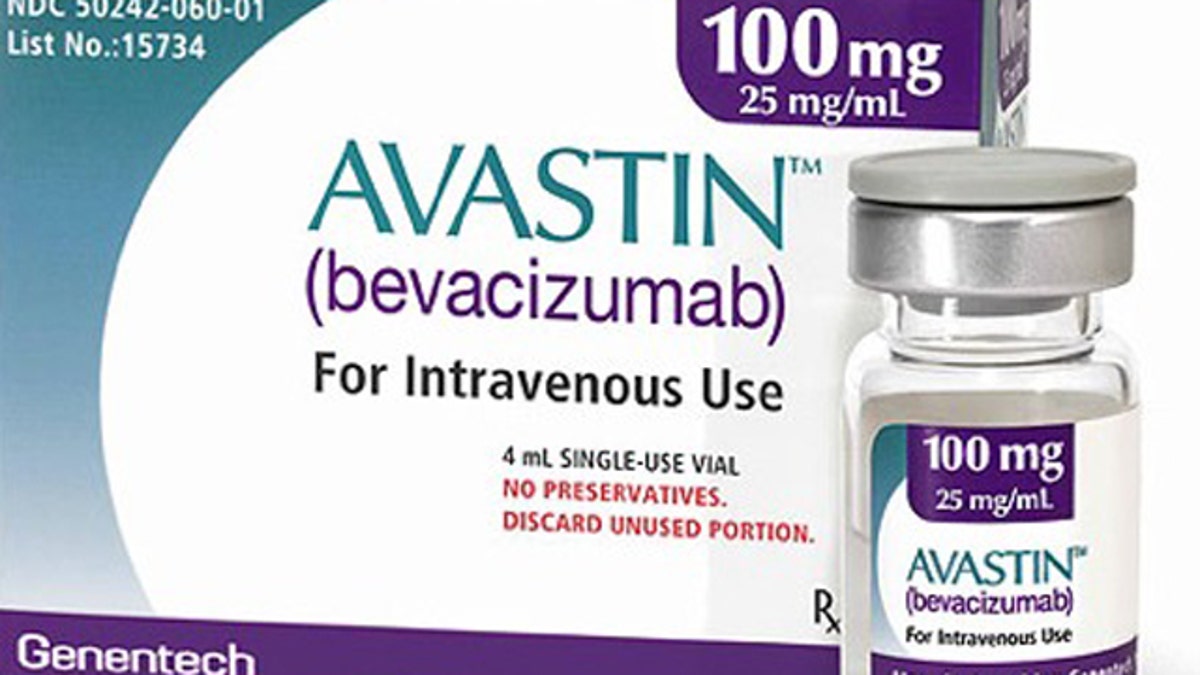
The cancer drug Avastin could help prevent blindness in a group of premature babies who were born before their eyes developed completely, according to a new study.
About 50,000 people worldwide are blind -- among them singer Stevie Wonder -- because of this condition, called "retinopathy of prematurity" for its effects on the retina.
The study, reported online today in The New England Journal of Medicine, showed that a single injection of Avastin into premature babies' eyes prevented blindness more effectively than laser surgery, which is the usual method doctors use when there are signs of problems.
However, further research is needed because the study was not large enough to prove whether the injections were safe.
Genentech's Avastin, known generically as bevacizumab, is FDA-approved for several cancers, including colon cancer that has spread.
Treating the babies involves numbing their eyes and then injecting the inexpensive drug into each one. The injection "takes a few seconds," chief author Dr. Helen Mintz-Hittner of the University of Texas Health Science Center at Houston told Reuters Health.
The traditional laser therapy, on the other hand, requires special equipment, damages a child's vision and requires sedation and a breathing tube.
"It's a major clinical setback" for a baby whose tube may have just been removed," Mintz-Hittner said.
The study was a randomized trial, which usually yields more reliable results than most other kinds of studies. Overall, 150 premature infants were randomly assigned to have their eyes treated with Avastin injections or with lasers.
All the babies had advanced retina damage in the zones of the retina nearest to the optic nerve, which carries information from the eye to the brain.
Among the 75 infants who received Avastin and whose retinopathy was in the zone of the retina closest to the optic nerve, 6 percent had a recurrence of retinopathy of prematurity compared with 42 percent treated with laser surgery.
Such cases have traditionally been hardest to treat.
For babies like these, with the injections are "a true breakthrough, " wrote Dr. James Reynolds of the University of Buffalo in New York in an editorial published along with the article about the study.
While conventional laser therapy permanently destroys the blood vessels supporting peripheral vision, the injections allow for continued blood vessel growth into the peripheral retina, the Mintz-Hittner team concluded in their study.
The researchers could not assess the safety of the injections because there were too few babies in their study.
But because so many adults with cancer have taken the drug, and the dose used in the babies' eyes was very small, "it seems reasonable to assume" that the Avastin injections are safe and at least as safe as laser treatment, Reynolds said in the editorial.
But the fact that the injections seem to be free of side effects in the eye does not mean they're always safe, he said, adding, "The timing of the injection is critical."
Injection too early may interfere with blood vessel growth, whereas injection too late may lead to retinal damage.
Mintz-Hittner said the findings will be particularly important in countries where more premature babies are surviving but monitors are not available to prevent the newborns from being exposed too much oxygen, which sets the stage for the disease.
"I think it's going to be embraced pretty quickly and widely accepted," she said.








































